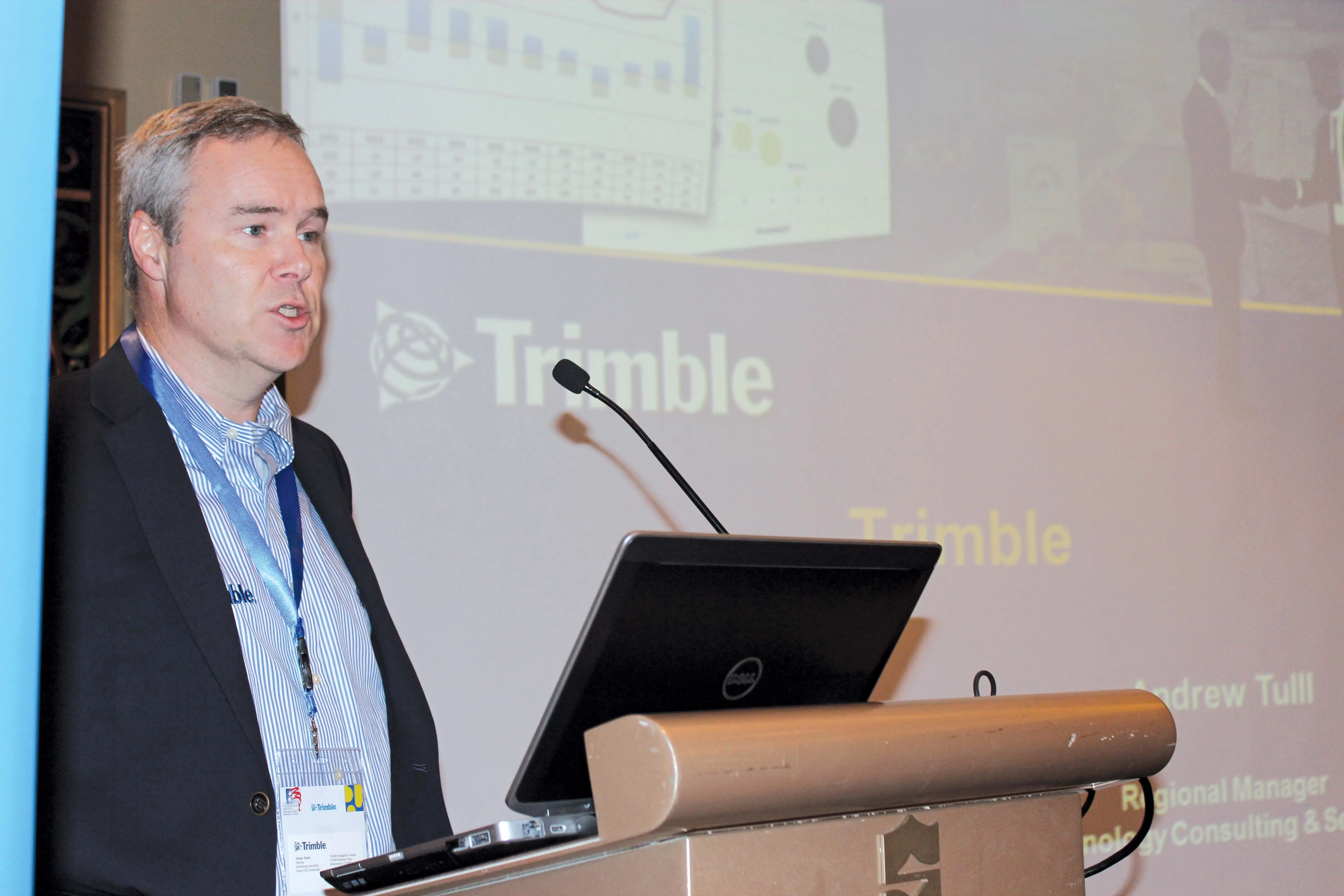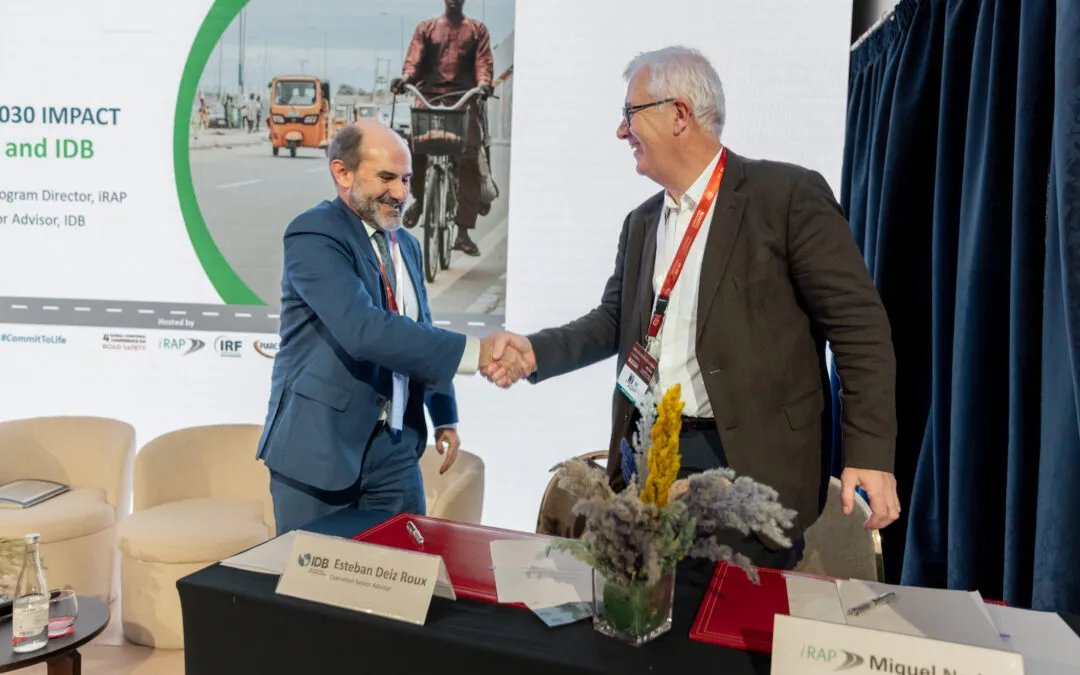Cutting-edge Sandvik Construction equipment is said to be giving ambitious Argentinian quarry firm Canteras Amadeo a commercial advantage .Starting life as a one-quarry enterprise in Córdoba, Argentina, in 1999, Canteras Amadeo is a flourishing business with additional operations in Cordoba and Santiago del Estero. Key to its success is said to be its owners’ embrace of technological improvement, and their choice of Sandvik equipment to improve their processes.
February 21, 2014
Read time: 4 mins

As freight transport costs soar and new legislation comes in next year to speed up the land acquisition process for new highways and toll roads, the 1065 Indonesian Government is encouraging contractors to use the latest “connected site” technology as the country gears up to build more than 500km of publicly-funded new roads every year for the next five years
Badan Pengatur Jalan Tol (BPJT), the Indonesian toll road authority, has just helped to co-host a “Construction Technology, Site and Office Solutions” event in Jakarta for 20 leading local contractors as part of nationwide discussion on how the country can achieve its government master-Plan for US$400 billion in new infrastructure investment between now and 2025.
This ambitious programme, called the “Acceleration and Expansion of Indonesia's Economic Development (MP3EI)”, aims to see Indonesia recognised as a fully-fledged developed economy in 2025 with a national GDP of $4 trillion to $4.5 trillion. It is a big challenge for a country that spans more than 17,000 islands and boasts a population of more than 250 million. This is where Trimble comes in, as Andrew Tull, regional manager consulting services with2122 Trimble Asia Pacific Heavy Civil Construction explained. “We saw an opportunity for Trimble’s Connected Site solution – which uses technology to improve efficiency and productivity, while minimising waste and expense – to assist Indonesia in achieving its ambitious infrastructure construction plans.” The US-based technology firm stepped in to help to stage the Jakarta workshop event, flying in a series of expert speakers.
The company’s Connected Site solution combines three key elements: “Connected Office, Connected Controller and Connected Machine.” The software boosts on-site efficiency and productivity and, said Tull, can “virtually eliminate every redundant step in the Plan design, construct and operate processes, resulting in the earlier completion of a higher quality project at a lower cost.”
BPJT secretary Arief Witjaksono told the Jakarta conference that “we are looking for investment from all over the world, and we want investment in Indonesian toll roads to be attractive to global investors. Today’s presentation by Trimble was really impressive and we believe the way we intend to implement this sort of technology on our road building programme is going to be of interest to investors. There are obviously some very smart tools available, especially for the contractor … tools that will give investors the confidence they need that contractors can deliver the right levels of road construction quality.” After all, a road constructed on time and on budget to the required quality, would benefit both investors and the public who uses it.
According to Arief, implementing this sort of connected site technology is essential because if could reduce costs by up to 33% compared with conventional construction methods. “I guess, if I were the contractor, I would buy this technology and equipment to provide greater efficiency and effectiveness of my work,” he said. “As the road building authority would like to encourage contractors to adopt this sort of technology, but it is difficult to stipulate this in the tender process. All we can define are the required results in terms of road quality and tolerances, but we can’t mention any kind of equipment or specific systems. But … right now in Indonesia, more than 90% of people conduct business using the road system, and, in my opinion, the system is not good enough. We have approximately 37,000 km of arterial roads; comparing this with other countries, I think we need more than double this. Once that infrastructure is in place, then Indonesia becomes a more desirable destination in which to do business, and we can attract investment from global companies in industries like manufacturing.”
Indonesia can certainly benefit from using leading-edge technology. For example, Java, with 140 million people, is the most densely populated island in the world making land acquisition, particularly on road construction projects, a key issue. Before the BPJT can issue a concession on a toll road, the law requires them to have already acquired 75% of the land needed which is why the Indonesian parliament has approved new legislation making the land acquisition process for public projects such as new highways and toll roads easier and faster. This legislation will be in full effect by 2015.
There will be a bigger and more detailed report on this event in World Highways March 2014.
Badan Pengatur Jalan Tol (BPJT), the Indonesian toll road authority, has just helped to co-host a “Construction Technology, Site and Office Solutions” event in Jakarta for 20 leading local contractors as part of nationwide discussion on how the country can achieve its government master-Plan for US$400 billion in new infrastructure investment between now and 2025.
This ambitious programme, called the “Acceleration and Expansion of Indonesia's Economic Development (MP3EI)”, aims to see Indonesia recognised as a fully-fledged developed economy in 2025 with a national GDP of $4 trillion to $4.5 trillion. It is a big challenge for a country that spans more than 17,000 islands and boasts a population of more than 250 million. This is where Trimble comes in, as Andrew Tull, regional manager consulting services with
The company’s Connected Site solution combines three key elements: “Connected Office, Connected Controller and Connected Machine.” The software boosts on-site efficiency and productivity and, said Tull, can “virtually eliminate every redundant step in the Plan design, construct and operate processes, resulting in the earlier completion of a higher quality project at a lower cost.”
BPJT secretary Arief Witjaksono told the Jakarta conference that “we are looking for investment from all over the world, and we want investment in Indonesian toll roads to be attractive to global investors. Today’s presentation by Trimble was really impressive and we believe the way we intend to implement this sort of technology on our road building programme is going to be of interest to investors. There are obviously some very smart tools available, especially for the contractor … tools that will give investors the confidence they need that contractors can deliver the right levels of road construction quality.” After all, a road constructed on time and on budget to the required quality, would benefit both investors and the public who uses it.
According to Arief, implementing this sort of connected site technology is essential because if could reduce costs by up to 33% compared with conventional construction methods. “I guess, if I were the contractor, I would buy this technology and equipment to provide greater efficiency and effectiveness of my work,” he said. “As the road building authority would like to encourage contractors to adopt this sort of technology, but it is difficult to stipulate this in the tender process. All we can define are the required results in terms of road quality and tolerances, but we can’t mention any kind of equipment or specific systems. But … right now in Indonesia, more than 90% of people conduct business using the road system, and, in my opinion, the system is not good enough. We have approximately 37,000 km of arterial roads; comparing this with other countries, I think we need more than double this. Once that infrastructure is in place, then Indonesia becomes a more desirable destination in which to do business, and we can attract investment from global companies in industries like manufacturing.”
Indonesia can certainly benefit from using leading-edge technology. For example, Java, with 140 million people, is the most densely populated island in the world making land acquisition, particularly on road construction projects, a key issue. Before the BPJT can issue a concession on a toll road, the law requires them to have already acquired 75% of the land needed which is why the Indonesian parliament has approved new legislation making the land acquisition process for public projects such as new highways and toll roads easier and faster. This legislation will be in full effect by 2015.
There will be a bigger and more detailed report on this event in World Highways March 2014.









